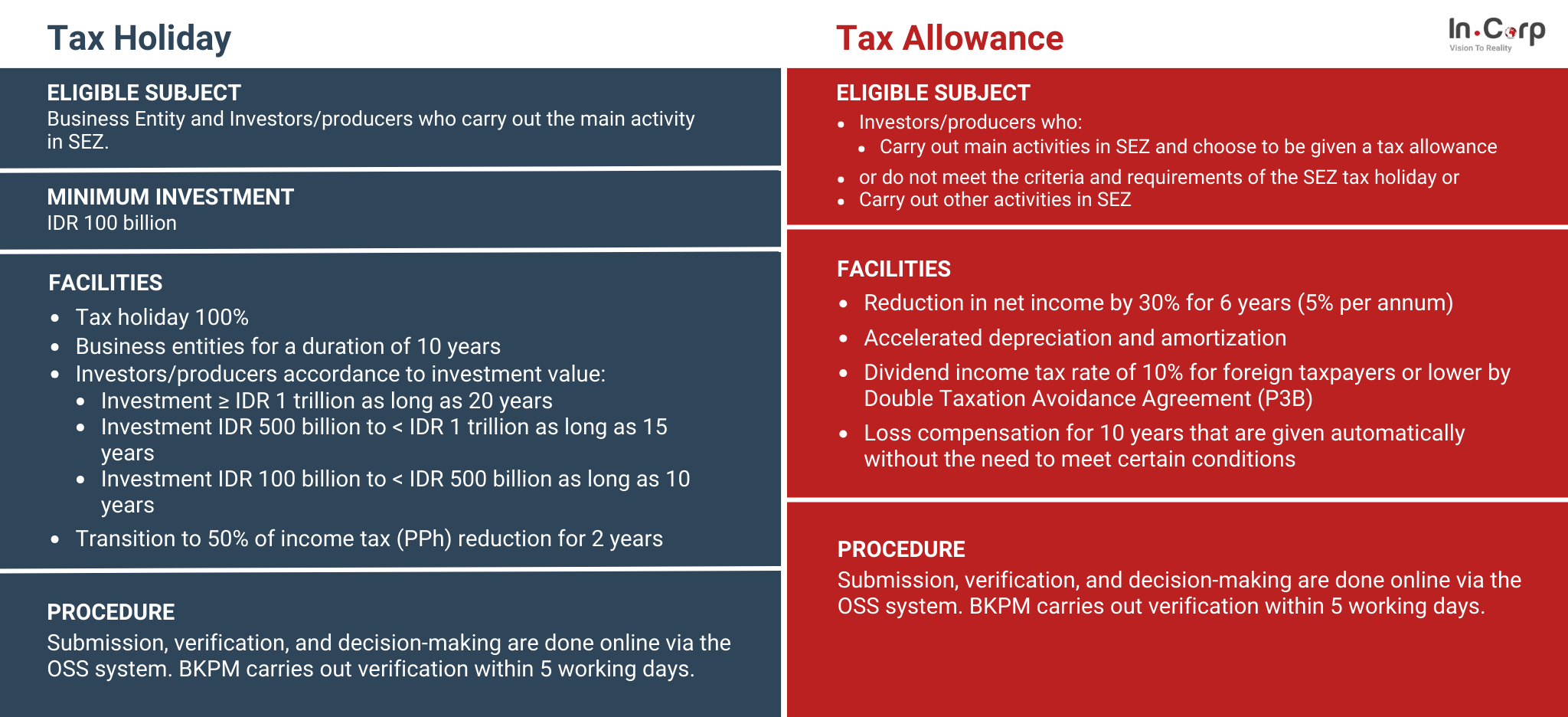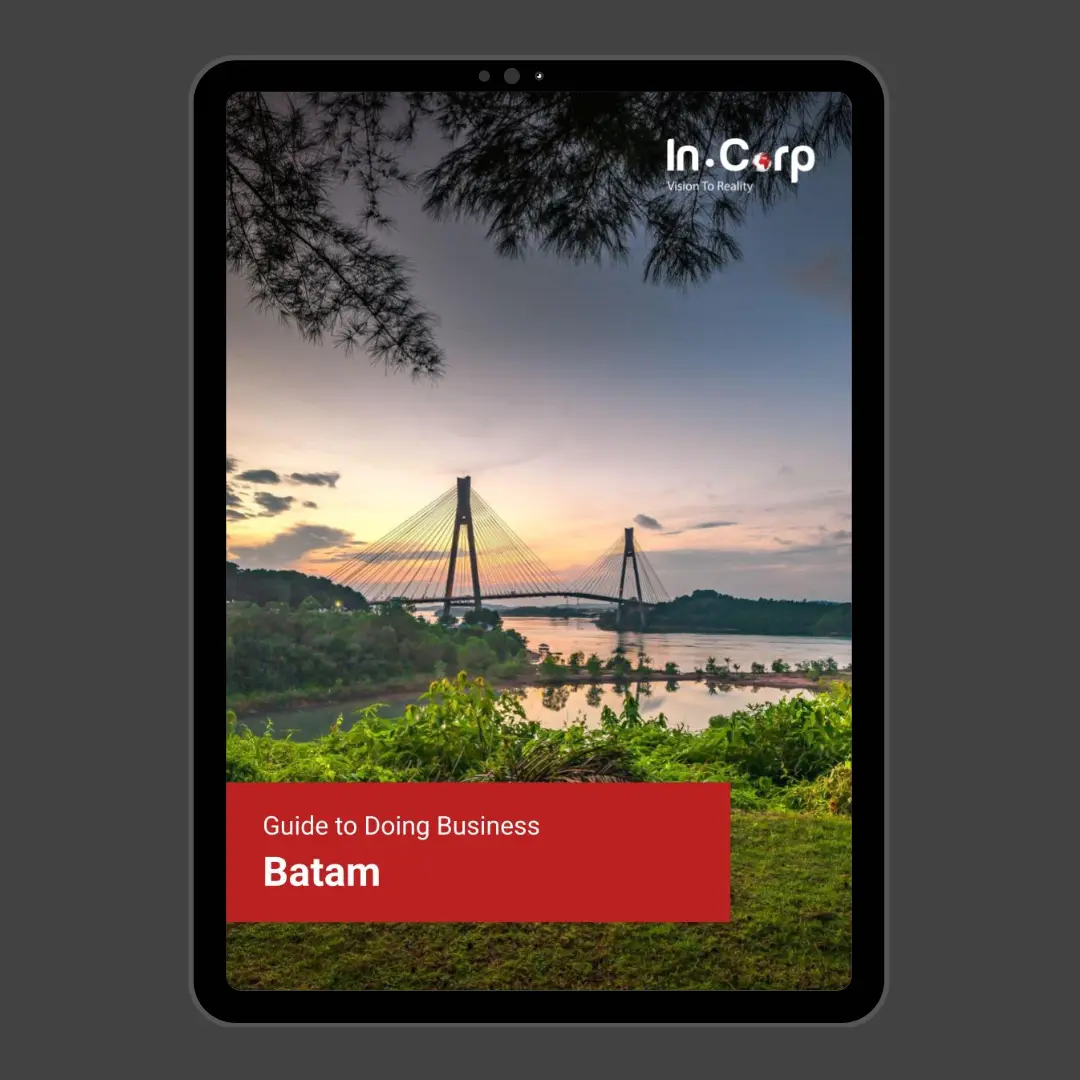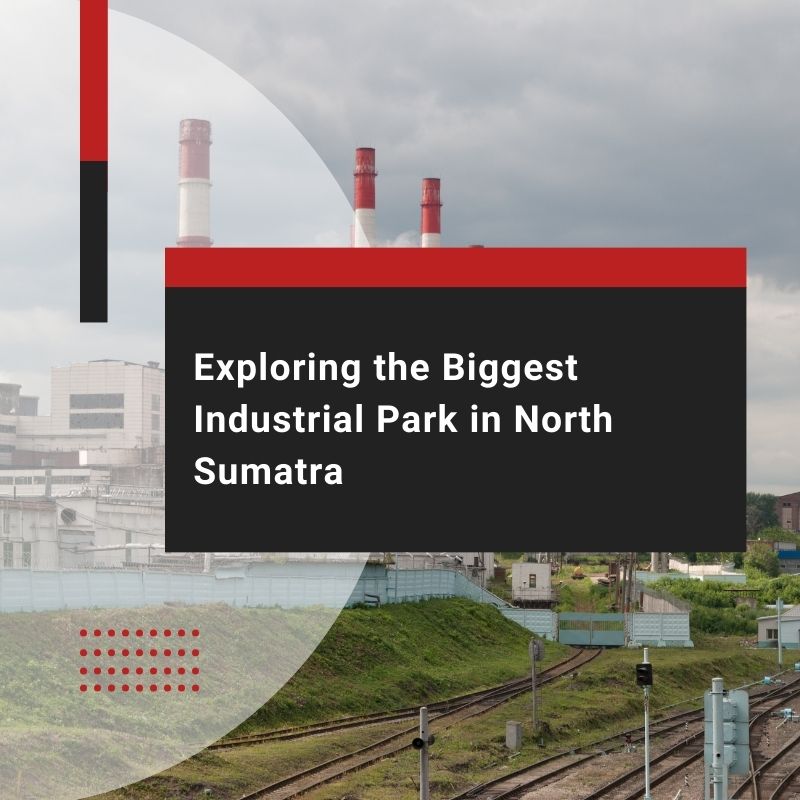In North Sumatra, Indonesia, the largest industrial park in the region stands as a hub of innovation and economic growth. This industrial and business park is pivotal in driving industrial development, offering many opportunities, investments, and prosperity.
This article will delve into its vital role in the regional economy, uncovering the diverse sectors that flourish within its boundaries.
Industrial Landscape in North Sumatra
The industrial sector in North Sumatra, particularly in the Medan and Tanjung Morawa areas, is currently experiencing rapid growth.
According to data from the Indonesia Statistics (BPS), the economic growth in North Sumatra in 2022 is estimated to reach 6.07%, which is a 1.91% increase from the previous year.
This growth is driven by the industrial and service sectors, which have seen significant expansion, growing from 10.5% in 2021 to 19.1% in 2022.
Industrial Parks on Regional Development and Economic Growth
Industrial parks play a crucial role in developing economies at local and regional levels. They serve as platforms that offer favorable conditions for investments and growth, promoting industrial progress and delivering substantial benefits to the country.
For developing countries such as Indonesia, industrial parks are a highly effective means of stimulating economic growth, modernizing industries, fostering innovation, and creating job opportunities.
Most importantly, park development attracts foreign investments, a strategically significant factor for these countries.
3 Biggest Industrial Parks in North Sumatra
There are three biggest industrial parks in North Sumatra, as listed below:
1. Sei Mangkei Industrial Estate (SMIE)
| Item | Description |
| Location | Bosar Maligas, Simalungun Regency |
| Investment Value | 1. Infrastructure: IDR 5,1 Trillion 2. Investor/Tenant: IDR 129 Trillion or equal to 9.36 Billion |
| Total Area/Land Status | 1933,80 Ha/ Land Management Rights |
| Business Scheme | PT. Perkebunan Nusantara III |
| Project Developer | PT. Kawasan Industri Nusantara (subsidiary of PT. Perkebunan Nusantara III) |
| Main Industries | 1. Palm Oil & Downstream Industries 2. Rubber & Downstream Industries |
| Financial Feasibility | 1. IRR: 15% 2. Concession: 30 years and extendable to 20 years |
| Project Owners | PT. Perkebunan Nusantara III |
| Sector to Invest | 1. Industrial: Palm oil products (oleochemical, refinery, biodiesel), Rubber products, NPK fertilizer production, Diverse industries (electronics, electricity, chemical, food, building material, textile), Small and Medium-sized Enterprises (SMEs) 2. Logistics: Dry Port, Tank Farm, Warehouse, Packing 3. Tourism: Hotel, Golf Course, Commercial Area, MICE (Meeting, Incentives, Convention & Exhibition) |
2. Kuala Tanjung Industrial Estate
| Item | Description |
| Location | Sei Suka Sub-District, Batubara Regency |
| Investment Value | IDR 28.87 trillion or equal to USD 1.95 Billion (USD 1 = 14,800) |
| Total Area/Land Status | 150 ha already available and will be expanded up to 3400 Ha |
| Business Scheme | Direct Investment |
| Project Owner | PT. Prima Pengembangan Kawasan |
| Main Industries | Industrial Estate |
| Financial Feasibility | With an IRR of 12% and an NPV of IDR 336 trillion, the project has a 14-year payback period. The land procurement area of 1,128 Ha has been approved in collaboration with the local government |
| Sectors to Invest | 1. Iron & Steel 2. Processed Foods: Livestock, plantation, and fisheries 3. Palm Oil Final Products: Fertilizer, oil, paper, and wood 4. Cement 5. Tires: Natural rubber, synthetic, chemical, plastic, and recycling industries 6. Rubber Products 7. Auto Parts & Accessories: Rubber, plastic, textile, chemical, aluminum, and iron steel 8. Footwear 9. Petrochemical 10. Aluminium |
3. Medan Industrial Estate (KIM)
| Item | Description |
| Location | Pulau Batam Street Medan Industrial Estate Area |
| Investment Value | IDR 359 Billion or equal to USD 23.64 Million |
| Total Area/Land Status | 150 Ha is still available and already clear by its existing land |
| Project Owner | PT Medan Industrial Estate Company |
| Main Industries | Infrastructure and Manufacturing |
5 Advantages of Investing in Industrial Parks
Below are the compelling reasons for businesses to consider investing in industrial parks in North Sumatra.
1. Strategic Location
Its proximity to the Malacca Straits and existing industries, aluminum and palm oil.
2. Abundant of Plantation
Potent palm oil and rubber hinterlands while other agricultural products add more volume.
3. Strong Government Support
It has been designated as a National Priority Project. It is recognized as one of the key industrial estates outside of Java, positioned to serve as the western hub of Indonesia’s industrial landscape.
4. Availability of Human Resources
It has abundant cheap and low-skilled labor suitable for manufacturing with productive ages dominated. High-skilled labor can easily travel to these industrial parks.
5. Integrated with Deep Seaport and Other Infrastructure
Supported by descent deep seaport, connected with hinterland access while gas and electricity access are provided.
Facilities and Government Incentives
According to PMK 237/2020, regulations for Taxation, Customs, and Excise Treatment in Special Economic Zones are as follows.

The Challenges and Opportunities
Developing industrial areas, including those in North Sumatra, is necessary to boost the manufacturing industry’s contribution to GDP by as much as 28% to avoid the Middle-Income Trap.
However, developing new and existing industrial areas still needs to overcome many challenges.
One of these challenges is the need for collaboration between the central government, regional governments, Industrial Area Associations (HKI), and the companies managing industrial zones.
Addressing another challenge involves addressing global concerns surrounding the uptake of green and sustainable industries. This necessitates the industrial sector aligning its growth with principles of environmental sustainability and social progress.
To propel the sustainability agenda forward, creating eco-industrial parks becomes imperative.
These parks are catalysts for environmental responsibility and resource efficiency within the industrial sector, ensuring that growth adheres to environmental sustainability and social progress tenets.
Guide to Doing Business in Batam

Start Your Business with InCorp Indonesia
The growth of industrial and business parks in North Sumatra undoubtedly opens up promising investment opportunities. These business parks are spaces for manufacturing and production and catalysts for regional development, economic growth, and sustainability.
Businesses that aim to capitalize on the potential of North Sumatra’s industrial park can work with InCorp Indonesia, which provides company registration and business license services.
Please fill out the form below and let us guide you.
Daris Salam
COO Indonesia at InCorp Indonesia
With more than 10 years of expertise in accounting and finance, Daris Salam dedicates his knowledge to consistently improving the performance of InCorp Indonesia and maintaining clients and partnerships.


